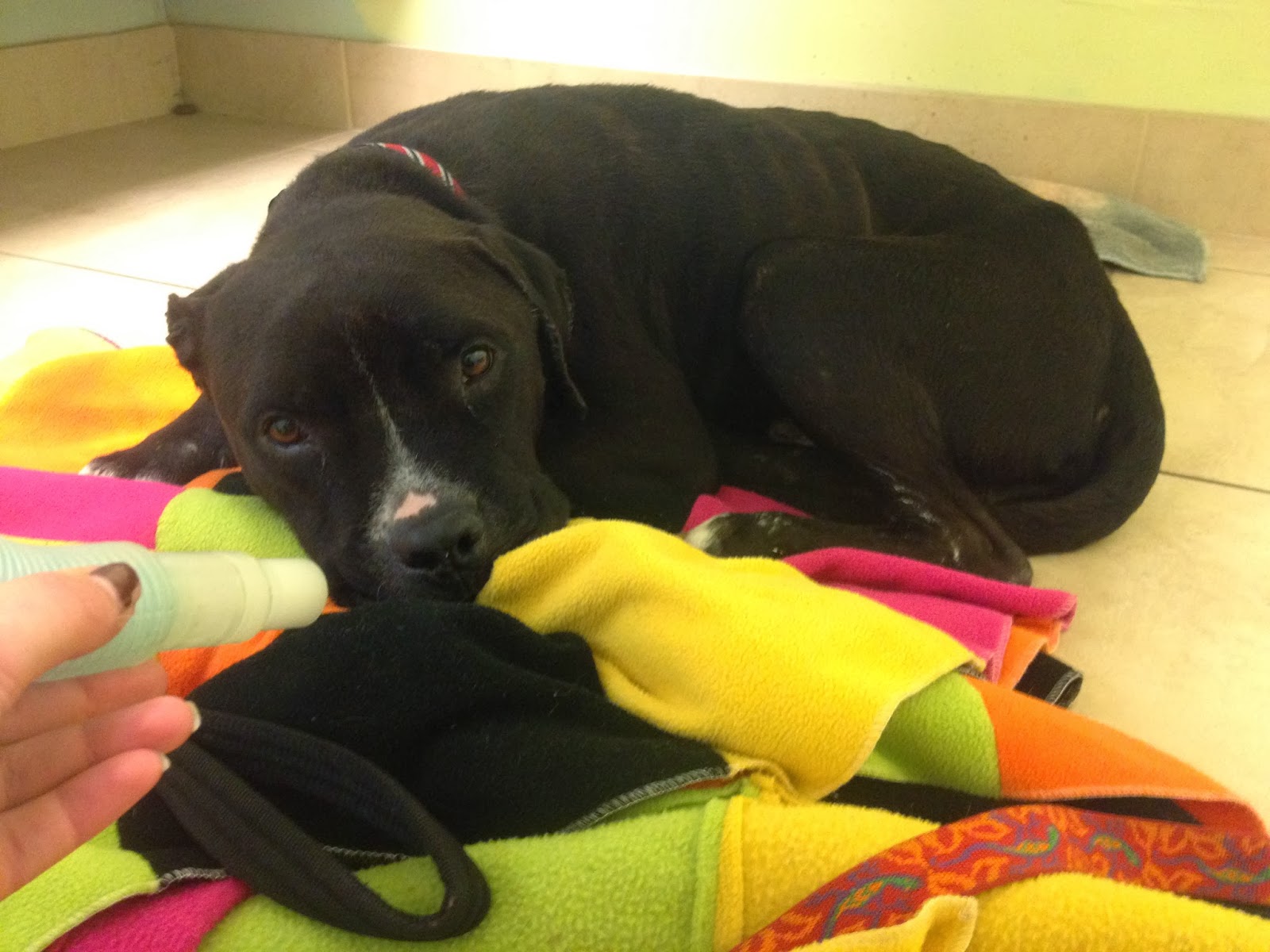We pulled Eddie from Clay County Animal Services on Friday, Jan. 17. He was thin and heartworm positive, but most of our dogs start out that way. Eddie’s foster mom, Kayla, had plenty of experience with sickly dogs and we were confident Eddie would be another success story. However, the day after we brought Eddie home, he became extremely anemic and lethargic. Late on Saturday night, Kayla rushed him to the emergency vet, where he received a blood transfusion. That one didn’t improve his condition significantly, and on Monday he received another transfusion at our regular vet, Dr Allison Schnoke at Archer Animal Hospital. She did further tests and determined that he was suffering from Immune Mediated Hemolytic Anemia (IMHA), a condition in which the patient’s own immune system attacks his red blood cells. This is a very serious condition, with high mortality rates even in otherwise healthy dogs. Eddie’s malnutrition and heartworm status made his situation even more dangerous. However, the second transfusion and additional medication seemed to do the trick, and Eddie seemed to turn the corner. Eddie’s vet bills from those couple of days were over $1700, but generous donors made it possible for us to do everything the vets recommended. Dr Schnoke called him our miracle dog. Eddie went home and steadily improved over the next couple of weeks, gaining weight and energy. After additional veterinary consultations, we felt confident in scheduling his heartworm treatment to begin in mid-February.
Early this morning, Eddie took a sudden turn for the worse and went back to the vet first thing this morning. Throughout the day his blood levels and his well-being steadily declined. He was again extremely anemic and suffering. Dr Schnoke tried to stabilize him, conducted additional tests, and consulted specialists. She researched all the possible options, including exploratory surgery, additional medications, and additional transfusions. She knew that we were prepared to do anything that might save his life and make it possible for him to recover enough to undergo heartworm treatment. Sadly, this relapse was worse than the initial crisis, and after a long, difficult day, during which Eddie became increasingly uncomfortable, we were forced to the conclusion that we were out of medical options. He just could not be saved, even with all the resources available.
We were prepared to do anything that might save his life. This is something many of us take for granted in regards to our own dogs, but when we are talking about shelter or foster dogs, we think twice. It’s hard to know how many resources to devote to a single homeless dog when the money spent on extraordinary vet care could, in principle, help multiple dogs. A strict Utilitarian ethic – aimed at maximizing welfare for the largest number of individuals – would probably tell us not to go to extreme lengths for a single animal. In the end, the cost of Eddie’s vet care will total well over $2000, perhaps closer to $2500. That’s a lot of money for a small rescue group.
I’m sensitive to the welfare-maximization argument, but there’s another ethical perspective that I also find compelling. When we pulled Eddie from a low-resource, high-kill rural shelter, he stopped being a “homeless dog” and became one of our own. We committed to treating him as though he mattered. That’s not to say all the dogs left behind don’t matter – they do – but we can’t pull them all. We are constantly doing cost/benefit calculations, trying to match resources to needs, figuring out how to maximize the good we can do with very limited resources.
When we pull a dog, however, we cease being Utilitarians and instead become Kantians (of a particularly quirky and subversive sort). Our guiding principle becomes not the maximization of welfare but the commitment to treat every individual as an end in himself, not just a means to a larger good.
In the case of Eddie, this meant pulling out all the veterinary and fiscal stops. That was the only course that respected his intrinsic value – his personhood, if you will. It was expensive, and in the end it wasn’t enough. However, Eddie got what my own dogs would get: total commitment, unwavering hope, and endless love.
Some people think that it contradicts or undermines the goals of rescue to devote all that to a single dog. To the contrary, I think that this is precisely the meaning of rescue: we give to this dog what every dog should have. At least for a few short weeks, his life embodied the world we want for every dog and every human.
We loved you the most, little guy.



